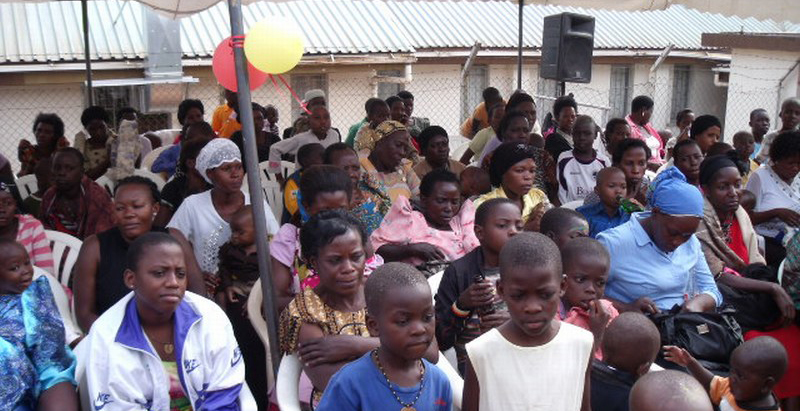Guest Writer
Sickle Cell; Early diagnosis is key to better health

Sickle Cell day commemorated
Worldwide, September is designated as the sickle cell disease awareness month to help focus attention to the need for research, prevention and treatment for sickle cell disease. This disease occurs when hemoglobin, a protein carried by the body’s red blood cells that attaches to oxygen in the lungs and transports it to all parts of the body, is abnormal.
In this condition, red blood cells are hard, sticky and resemble the crescent moon or the letter “C”. This condition is also named after a sickle, the farm tool with this shape. These misshapen blood cells get stuck and obstruct blood flow as they travel through small blood vessels. This disease presents symptoms which include severe pain; stroke; blindness; jaundice and fatigue. Persons living with sickle cell disease are at risk for organ damage, serious infections, and anemia.
In Africa, Uganda has the fifth highest sickle cell problem. Sadly, the majority of our population is not aware of this. The sickle cell problem in Uganda is worsened by limited and inaccessible formal social support structures to aid patients and families cope better with the psychosocial burden of this disease.
The Ministry of Health indicated that 13.5 per cent of our population carry the gene that allows them potentially to pass the disease on to their children. People who inherit one sickle cell gene and one normal gene have the sickle cell “trait” and although they do not have the disease themselves but they become carriers of the disease. Being a carrier means that a person has a chance of having a child with sickle cell, if they have a baby with another carrier. Such unions continue to add to the sickle cell problem in Uganda. This means that everyone has a responsibility to know their sickle cell status.
One out of seven people will be carriers of this condition. This could mean one in seven couples will have a chance of having a child with sickle cell disease or trait. Imagine at your local church or mosque, among 7 weddings happening at any given time, one of those has a potential of giving birth to a child or children with sickle cell. Which makes it everyone’s problem.
Screening is the first step in breaking the cycle of sickle cell disease. Persons with the sickle cell trait should be counselled in order to better understand this. Couples should be encouraged to take a sickle cell test. Knowing your sickle cell type and making a conscious decision in regards to choosing one’s husband/wife can result in a sickle cell disease-free society.
The prevalence of the sickle cell condition varies by region and district. One out of 150 people in Uganda will have sickle cell disease. That one could be your child or grandchild. Imagine your child in so much pain that they do not want to be picked up. As a parent, it hurts to see your baby in so much pain, or waking up one day when they are not able to use part of their limbs due to a stroke.
Currently about 25,000 babies are born, with sickle cell disease every year. Fortunately, there are effective treatments that can reduce symptoms and prolong life, but early diagnosis and regular medical care to prevent complications are key which is not happening in Uganda. Up to 80 per cent of those born die before their fifth birthday. One of these babies could one day be yours.
Through comprehensive care, we know people affected by sickle cell disease can enjoy most of the activities that other people do. Sickle cell disease is a life-long illness – the severity of which varies widely from person to person. By preventing infections, developing and maintaining healthy habits and undergoing regular checkups, those with sickle cell disease can lead full lives.
Bone marrow transplant has been the only cure available. Ongoing research shows new gene and cell-based therapies as potential cures for this condition. In Uganda, Hydroxyurea, the only disease-modifying drug in sickle cell, is not yet available for our patients. This medication is not available in the government supply chain, meaning that patients have to buy it. Our appeal is for the Ministry of Health to fast-track the process to avail this essential medicine to persons living with sickle cell disease.
In Uganda, the Sickle Cell Rescue Foundation spearheaded the September initiative to celebrate the progress made in treating Ugandans suffering from this condition and reinforce the commitment to end this disease through the 5th Annual Sickle Cell Conference which happened September 19th, 2019.
The sickle cell conference sought, among other things, to create a coalition between private sector, government and its entities such as health policy makers, Ministry of health, academia, and the civil society in implementing disease health policy; increasing the disease awareness and education about the disease.
This event sought to create a forum to appeal for more research/funding for sickle cell activities; increase evidenced based practices in sickle cell management and show the impact of sickle cell diseases on our lives and communities. This public event aimed at offering an array of exciting activities designed to educate and motivate the entire community to get involved in the fight against sickle cell disease.
So, this September, we urge the government for better training of our healthcare providers to identify carriers and individuals with sickle cell disease; and improve the quality and continuity of their care from infancy through adulthood. Every child deserves a chance to have a productive life. Early diagnosis with prescribed medical care can offer that possibility.
Sharifu K Tusuubira,The author is a technical advisor at Uganda Sickle Cell Rescue Foundation.
Comments


















